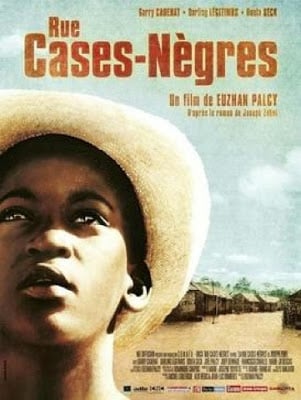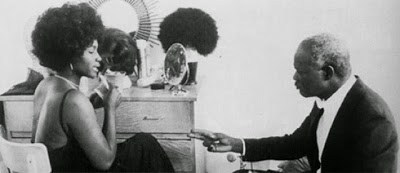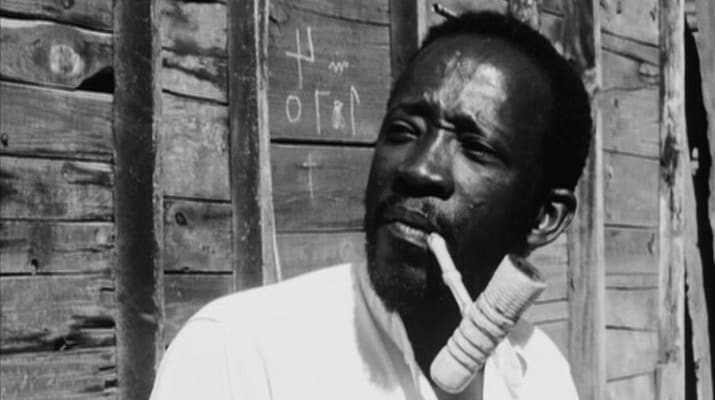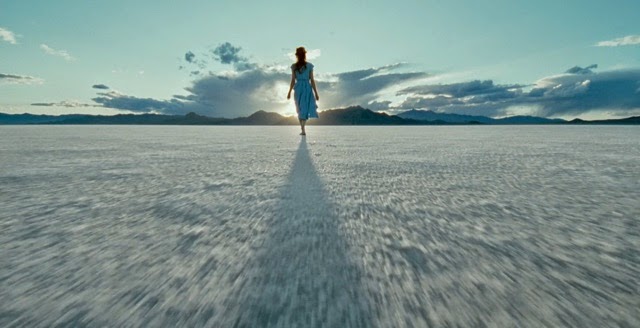
Election (Alexander Payne, 1999)
October 1, 2010
The African diaspora: Colonialism and displacement
October 1, 2010Xala: The impotence of colonialist class structure

What pierces through in Xala is its enunciation of neocolonialism’s use of Third-World bourgeoisie to foster dependence and division within the old colonies. But here, we must make an important distinction. The term bourgeoisie, in English-speaking countries has ideological inference, and it tends to be used, in general, as a pejorative term to suggest undeserved wealth or unsophisticated lifestyles, tastes and opinions. We could contrast to it the term elite, which divides society into two groups, the gifted elite and the lower masses, but also suggests a social responsibility, a social conscience. Xala (1975) criticizes the former for exalting the creation of a socially conscious ruling “class”. In Xala, a businessman, El Hadj Abdou Kader Beye, polygamist and with two wives, decides to take in a third, feeling that his future looks bright. The film starts with El Hadj and his fellow politicians’ meeting to discuss governmental matters, while two representatives of a foreign government look on. It is clear from the scene that, although Senegal has been independent since 1960, neocolonialism ruled through the crooked bourgeoisie or ruling class. The bourgeoisie rules under false allegiance, catering and nurturing the unease, differences and complexes between them and the masses. They are the gatekeepers of the corrupt system Sembene presented in Mandabi (1968) a few years earlier. For Sembene, the bourgeoisie is out of touch with their own identity:
“[…] The African bourgeoisie’s only reference point is the West. Dakar, Abidjan, Libreville or Yaounde are simply the capitals of French provinces. They are just the peripheries of neocolonialism whence their danger. But when these types find themselves face to face with the people, they are often illiterate in the country’s national language—they are alienated to such an extent, for inside themselves they are colonized. They are always the first to say people’s mentalities have to be decolonized, but it is actually their mentality which has to be”.
El Hadj is guilty of a manufactured mentality and limited vision. He sells out his country to foreigners so that he can become wealthier. He builds a wall between him and his compatriots and maintains it with the help of language. As Sembene continues:
“[…] We have a bourgeoisie whose official language is nothing but French. They merely copy the West and western bourgeoisie”.
This barrier even stands between him and his daughter. While he seeks to perpetuate the paradigms of colonialism, Rita, his daughter, endeavours to break free of them. While he talks to her in French, she answers in Wolof. Although they understand each other, the distance between them is apparent. El Hadj desperately tries to reconnect with her and demands why she’s speaking in Wolof, but she doesn’t answer. There is no more need for communication between them; they’re from different worlds.
The true power of the narrative comes from its premise. After he weds his third wife, a young attractive African woman, El Hadj is unable to perform in his marital bed. El Hadj, the ambassador of his patriarchal society, by the intervention of an outside force, loses all his power, literally and figuratively during the movie. He even goes so far as to visit a marabout, the representative of what he deems to be a primitive culture, to lift his curse. In the end, the curse was cast by an old acquaintance who has joined the ranks of the beggars and paupers of the city. The final scene, the humiliation of El Hadj, although graphic and disturbing, warns that you reap what you sow, in your present life or your next one. It’s an appeal to an end to the present bourgeoisie and a disassociation from its masters. As Sembene puts it, “Colonialism only survives with us through the mediation of this bourgeoisie”.
- Black Panther: A Perspective - March 20, 2018
- Seven Pounds (Gabriele Muccino, 2008) - May 5, 2015
- Honeymoon (Leigh Janiak, 2014) - January 30, 2015



